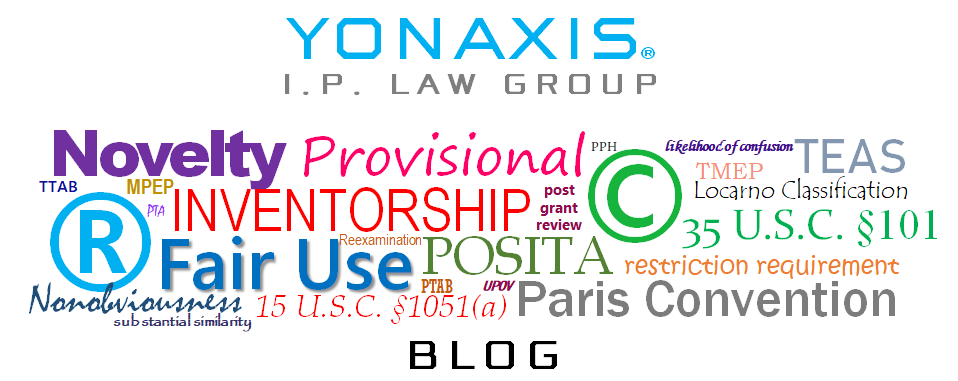Sovereign immunity is the right of the government to not be sued absent waiver or consent. The federal government retains sovereign immunity rights.[1] States, through the Eleventh Amendment, also have sovereign immunity in federal courts.[2] Indian tribes also have sovereign immunity absent waiver or congressional abrogation.[3] This final type, tribal sovereign immunity, has never been used in a patent context. Until now. On July 22, 2018, St. Regis Mohawk Tribe v. Mylan Pharms., Inc.,[4] was handed down by the Court of Appeals for the Federal Circuit.
The facts are as follows.
RESTASIS® is Allergan’s $1.4 billion revenue-generating dry eye drug. Mylan petitioned for inter partes review of several RESTASIS® patents. After institution, Allergan assigned the patent rights to the St. Regis Mohawk tribe, which asserted tribal sovereign immunity. None of the patents were directly at-issue in this case, and only the issue of tribal sovereign immunity was presented. Specifically, the question of whether tribal sovereign immunity may be asserted in an IPR was at-issue. The PTAB denied the St. Regis tribe’s motion to terminate the IPR on the basis of sovereign immunity, as well as Allergan’s motion to withdraw. Both appealed to the Fed Circuit.
The Fed Circuit panel was composed of Judges Dyk, Moore, and Reyna, with Judge Moore writing for the court, and Judge Dyk writing a concurrence. In her opinion, Judge Moore focused on the FMC rule. The general rule is that sovereign immunity does not apply where the federal government acts through a federal agency conducting an investigative action or an adjudicatory agency action.[5] However, the FMC rule holds that the general rule against sovereign immunity in federal agency proceedings is not absolute, and depends on the exact procedural aspects of those proceedings.[6] In FMC, the U.S. Supreme Court determined that Federal Maritime Commission proceedings were overwhelmingly similar to federal civil litigation. Both the rules and procedures between both the FMC and the federal courts were “virtually indistinguishable.”[7] Here, St. Regis argued that the FMC rule applied to IPR proceedings. Judge Moore disagreed.
IPR is neither clearly a judicial proceeding instituted by a private party nor clearly an enforcement action brought by the federal government. It is a “hybrid proceeding” with “adjudicatory characteristics” similar to court proceedings, but in other respects it “is less like a judicial proceeding and more like a specialized agency proceeding.”[8]
She wrote that the recently decided Supreme Court decisions in Oil States and SAS assisted in logically delineating federal agencies like FMC, which are subject to sovereign immunity, and the PTAB, which are not. Oil States held that IPR is a reconsideration of the USPTO’s original grant of a public franchise, and serves the public interest by ensuring patent monopolies are held within their legitimate scope.[9] Also, SAS held that IPRs were structured by Congress to allow the petitioner, and not the USPTO Director, to determine the contours of the proceeding, outside of the Director’s ability to determine institution of review, or not.[10] It is this discretion at the onset of the IPR proceeding which differentiates it from an FMC proceeding.
In FMC, the Federal Maritime Commission lacked the “discretion to refuse to adjudicate complaints brought by private parties,” [citation omitted] and in federal civil litigation, a private party can compel a defendant’s appearance in court and the court had no discretion to refuse to hear the suit. In both instances, absent immunity, a private party could unilaterally hale a sovereign before a tribunal, presenting an affront to the dignity of the sovereign . . . . The Director’s broad authority to not institute alleviates these concerns in the IPR context. It is the Director, the politically appointed executive branch official, not the private party, who ultimately decides whether to proceed against the sovereign.[11]
Judge Dyk concurred. His opinion did not reveal much additional legal analysis, but rather impressively, with numerous citations, discussed the history of IPRs and the role of private parties and federal agencies.
This is not the last we will hear on this matter. The St. Regis tribe and Allergan will certain file petitions for rehearing en banc before the Fed Circuit and/or writ of certiorari before the U.S. Supreme Court. In another iteration of this case, four patents in the RESTASIS® family were found invalidated as obvious last year by the Eastern District of Texas, and is currently on appeal before the Fed Circuit. Oral arguments in that case are due to be heard sometime in the fall.
[1] See U.S. v. Mitchell, 445 U.S. 535, 538 (1980).
[2] See Hans v. Louisiana, 134 U.S. 1, 3 (1890).
[3] See Okla. Tax Comm’n v. Citizen Band Potawatomi Indian Tribe of Okla., 498 U.S. 505, 509 (1991).
[4] ___F.3d___ (Fed. Cir. 2018) (slip op.), aff’g Case Nos. IPR2016-001127, IPR2016-01128, IPR2016-01129, IPR2016-01130, IPR2016-01131, IPR2016-01132, IPR2017-00599, IPR2017-00576, IPR2017-00578, IPR2017-00579, IPR2017-00583, IPR2017-00585, IPR2017-00586, IPR2017-00594, IPR2017-00596, IPR2017-00598, IPR2017-00600, and IPR2017-00601 (P.T.A.B. 2017).
[5] See Pauma v. NLRB, 888 F.3d 1066 (Fed. Cir. 2018).
[6] See Fed. Maritime Comm’n v. S.C. State Ports Auth., 535 U.S. 743, 754-56 (2002).
[7] Id. at 759.
[8] St. Regis Mohawk Tribe, supra (slip op. at 7) (quoting Cuozzo Speed Techs., LLC v. Lee, 136 S. Ct. 2131, 2143-44 (2016)).
[9] See Oil States Energy Servs. v. Greene’s Energy Group, LLC, 138 S. Ct. 1365, 1373 (2018).
[10] See SAS Inst., Inc. v. Iancu, 138 S. Ct. 1348, 1355 (2018).
[11] See St. Regis Mohawk Tribe, supra (slip op. at 9).
